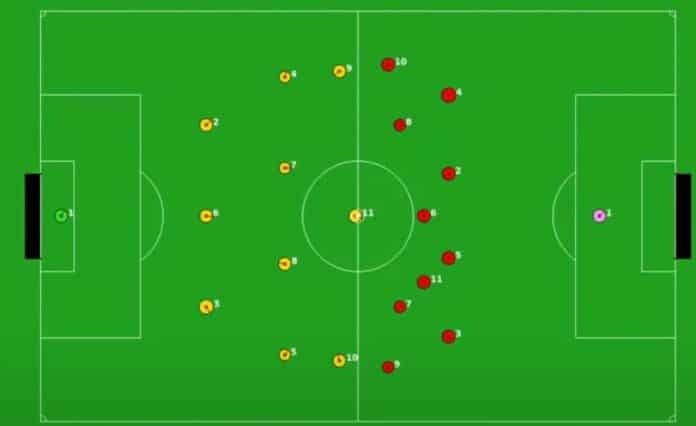Discover Pyrus base, a Python-powered 2D RoboCup simulation platform, democratizing AI experimentation in RoboCup where teams of humanoid robots compete, refining virtual simulations for real-world excellence.
The RoboCup serves as a global stage, spotlighting innovations in robotics and artificial intelligence (AI). Teams from different corners of the world bring their humanoid robots to the fore, competing in soccer matches against fellow robotic contenders. A dedicated collective of researchers, roboticists, and technologists pour their expertise into designing these robots and refining algorithms. Before making their debut on the physical field, these robots are rigorously tested in virtual simulations. Employing these simulated environments is paramount in detecting and rectifying flaws, ensuring the robots’ top-notch performance in the real-world face-off.
Researchers from Dalhousie University and Memorial University of Newfoundland in Canada have unveiled Pyrus Base, an open-source Python platform tailored for two-dimensional (2D) RoboCup soccer simulations. This platform promises to streamline the process for researchers, allowing them to train and validate their robotic soccer-centric algorithms effectively. The study presents a foundational Python code crafted for enthusiasts delving into AI within the RoboCup Soccer Simulation 2D realm.
The team emphasized that given the robust frameworks existing in Python, this foundational code was conceived to simplify and accelerate the journey for researchers, facilitating the transformation of their innovative ideas into tangible outputs within this multi-agent setting. Many prevalent frameworks for robotic soccer simulations, like HeliosBase and Cyrus2DBase, predominantly rely on C++. Although C++ offers numerous benefits, such as its adaptability for diverse applications, it’s notably more complex than other languages, like Python. C++-based simulation platforms are generally suited for individuals with a solid grasp of programming. To address this, the team endeavoured to craft a more user-friendly alternative in Python, catering to users spanning a spectrum of technical proficiencies.
Pyrus Base provides a user-friendly 2D simulation platform designed to enable even novice programmers to experiment with AI models for RoboCup. The creators anticipate this accessibility will attract a wider pool of researchers, spurring further advancements in robotic soccer. The environment within RoboCup’s 2D soccer simulation league is multi-agent-based and noisy, emphasizing offensive and defensive tactics. AI can be transformative in this context. Utilizing techniques like reinforcement learning, agents might master manoeuvres like dribbling or passing. Certain machine learning strategies could potentially minimize environmental noise. In subsequent research, the team aims to refine the framework, enabling it to support a broader array of AI algorithms.










































































